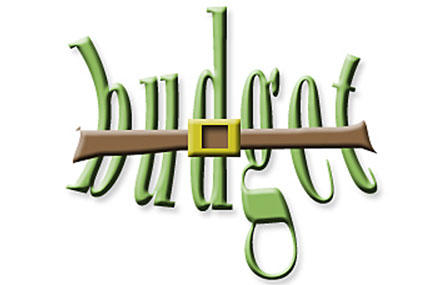Ever wonder if you could really live on less? In theory, we all know we could -- but, of course, no one wants to, right?
Unfortunately, a lot of folks who depend on government paychecks are potentially facing as much as a 20% pay cut in the future. If you're one of them -- or if you're just looking for ideas to get a better handle on your monthly cash flow -- here are four money tips to help you get lean in case your money situation turns mean.
Know where it goes.
If your pay might be cut, you're likely going to need to cut your expenses as well. But doing this is nearly impossible if you don't know where your money goes. To be clear, I'm not talking ballpark ideas here. I'm talking about tracking at a level of detail that allows you to say, "Last month we spent $____ on groceries, which was $____ more than the previous month, and $____ more than we intended to spend." If you can't fill in those blanks for all of your expense categories -- big and small, major and minor -- you're probably not tracking closely enough.
Create large categories.
Once you've got a handle on where all of your money goes, I suggest dividing your expenses into the following broad categories:
- Fixed Requirements -- expenses that are relatively fixed from one month to the next and are required for your family to function. These will typically be things like debt payments, savings (yes, this should be a requirement for most people, though some circumstances may make it difficult), insurance premiums, etc.
- Variable Requirements -- expenses that vary from one month to the next, but that are also required for your family to function. In this category are things like groceries, transportation costs and utilities.
- Discretionary Expenses -- expenses that make life better but aren't required for your family to function. Here we are looking at entertainment, dining out, children's activities -- all those nice little extras.
Breaking things out like this can be very helpful because certain major categories are easier to cut than others.
Start cutting at the bottom and work backward.
From a practical standpoint, cutting expenses is often easiest if you start with discretionary expenses, then move to variable requirements and, finally, fixed requirements. The amount of savings you'll be able to get from each category really depends on how you currently spend. Discretionary expenses should be able to give you 5% to 10% in savings, variable requirements 8% to 10%, and fixed requirements (if you cut back on some good habits like saving and extra debt payments) 8% to 10%.
For those with heavy debt loads or relatively high fixed requirements, these percentages could be difficult to reach. In such cases, even tougher questions will need to be answered. Questions like, "Should we get rid of this car(s)? Should we stop spending money on this activity for our children? Or, should we temporarily stop saving for retirement?"
Though sometimes it won't be possible, the goal should be to keep positive behaviors, such as saving, intact. It's also highly unlikely that cutting insurance coverage would ever be a prudent move.
Lose the sacred cows.
Desperate times call for desperate measures ... and a 20% cut in pay sure sounds like a desperate time to me. This means that virtually no expense should be off limits for elimination or reduction. If it can be cut, you might just need to cut it. To increase your odds of long-term success, consider cutting back rather than cutting out altogether. Taking all the fun out of life might keep you afloat for awhile, but budget fatigue will eventually take over and put you right back where you started, or worse.
Make no mistake, these four points are a lot easier to write than they are to implement, as would be the case if I wanted to try to lose 20% of my body weight. However, if 20% of your pay is potentially on the chopping block, you're going to need an action plan. I hope these four points are a solid foundation for helping you get through tough times and keep up positive budgeting habits during good times.













